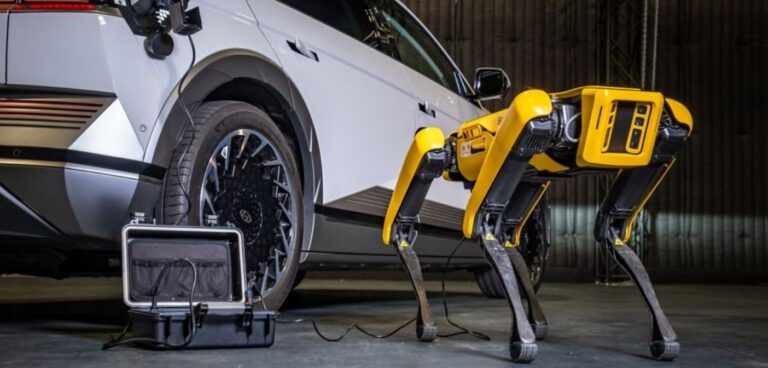According to a poll conducted by car manufacturer Hyundai of 1,000 children aged 6-10, 72% wanted to see self-driving electric vehicles (EVs) and 51% said they’d like to see a flying car.
Some 65% thought technology could improve the world, especially for making and building new things (59%) and learning (56%).
Almost two in 10 (17%) said they wanted to travel to space via public transport.
Transport dominated the children’s wishlist for future technologies, with respondents also asking for robots and flying school buses.
A group of 2,000 adults was also polled, with more than half (51%) believing that technological developments were key to society’s progress.
The adults also named scientific research, healthcare, business and education as areas where people believed technology was key to success.
When considering the impact of technology on their daily lives, nearly two thirds of British respondents (62%) noted the role of tech in their personal mobility, with 38% of Brits saying they felt tech could improve the sustainability of transport.
Robots, flying and autonomous cars were also mentioned by the adults, when asked about what kinds of future technology excited them most.
The study commissioned by Hyundai looked to understand how adults and children perceive mobility solutions.
However, more than a third suggested that this kind of technology wouldn’t be available for at least another 20 years.
Some three-quarters didn’t know that some electric cars be used to charge other vehicles.
Ashley Andrew, managing director Hyundai Motor UK, said: “It’s clear from our research that society is eager to embrace technology on a range of levels such as helping efforts to clean up the environment and offer clean mobility solutions, ultimately driving progress in the way we travel.
“Many of us are also intrigued by the potential capacities of robotics, and how this will determine the future of technology.”
According to the poll, almost four in 10 adults have come to terms with the idea of interacting with robots as part of daily life, with 31% feeling excited at the prospect.
Almost half (47%) said they believed robots were useful, especially for scientific research, healthcare and transportation. They cited the abilities to learn, endure climate extremes and harsh terrain as important abilities.
For children under 12, the most appealing robot functions were the ability to do chores (55%) and homework (47%).
Almost a third of adults (32%) said they’d be willing to befriend a robot, while only 24% of children agreed.





